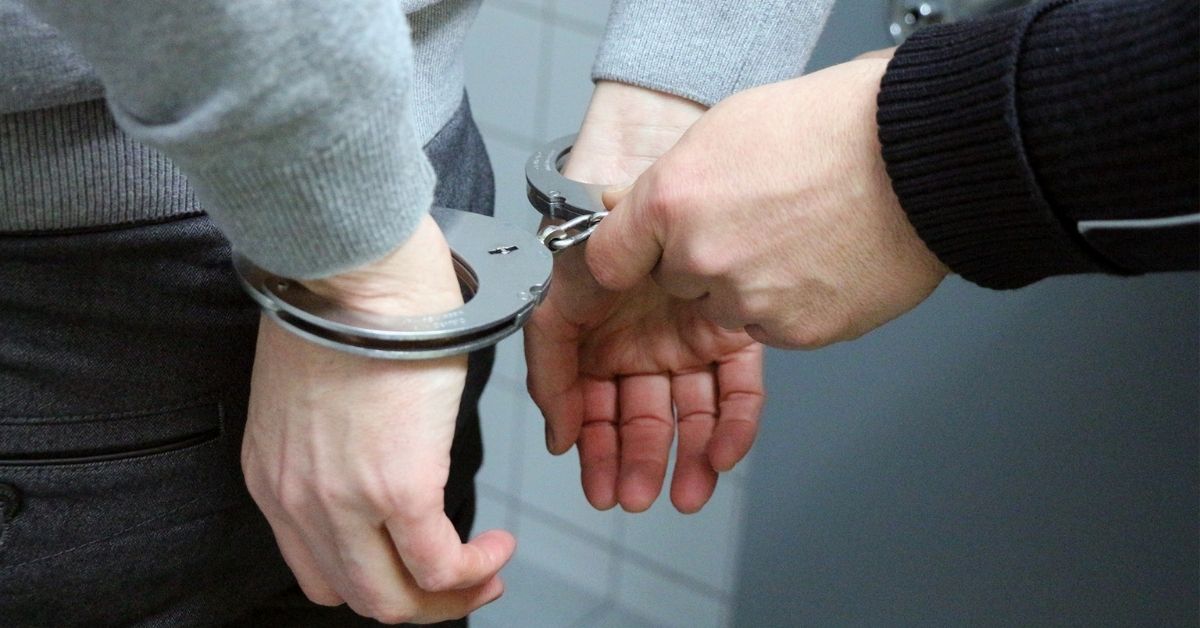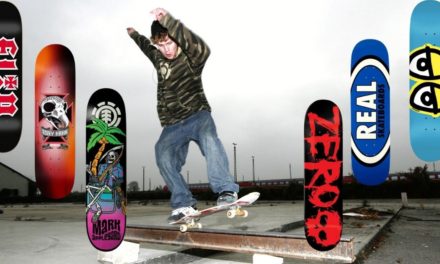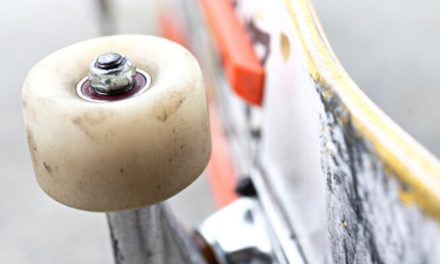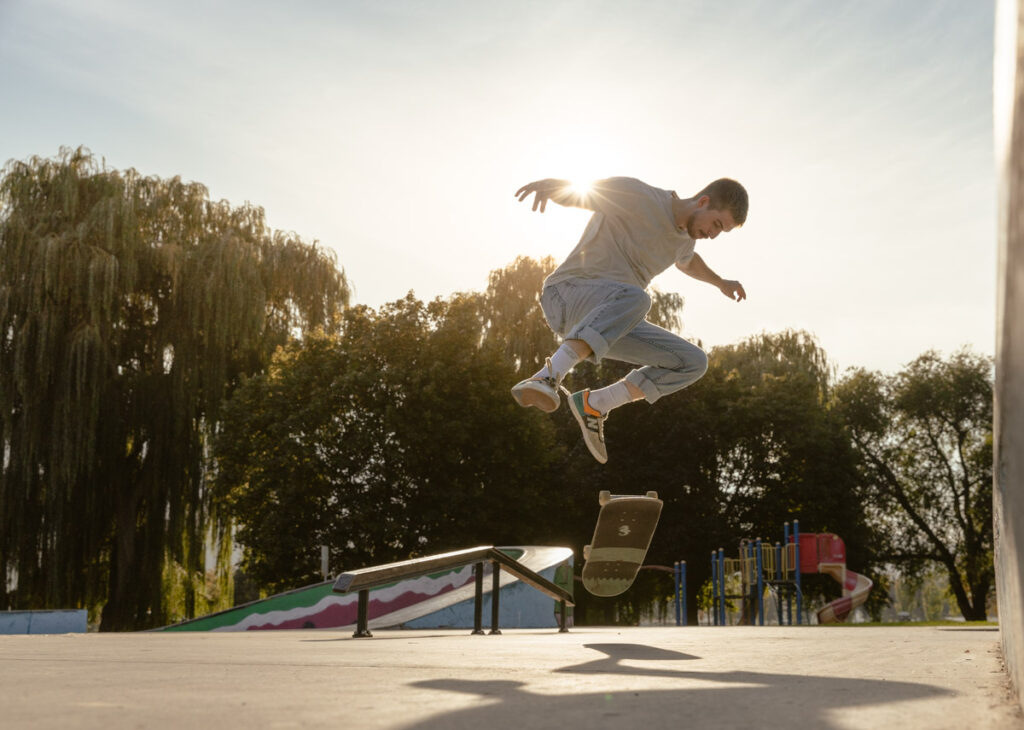To the owner of the skate spot you’re sessioning, skateboarding is one of the worst crimes of property damage they can imagine. If you ask any skater, their opinions are likely the exact opposite. So this grey area of whether or not skateboarding is actually a crime is often argued between regular folks and skaters.
To put this discussion to rest once and for all, I saved you the time of reading through a bunch of terribly boring bylaw articles from cities around North America, and I found some interesting things you’ll want to know about. Although skateboarding itself is technically not a crime, there are ways that it can become “criminal.”
And these rules often vary between different cities.
So let’s break down what things are ok, and what things are illegal when it comes to skateboarding.
Is Skateboarding A Crime?
The activity of skateboarding is not a crime in itself, however, it can become a crime depending on where you skateboard, and what you skateboard on. Property owners and cities have the right to set rules for which activities are and are not allowed on their property.
So that means that private residents have the right to ask you to leave if you are skating a stair set on their property for example.
As for cities and municipalities, bylaws are in place to regulate the use of skateboarding on public grounds. In most cases, these bylaws state skateboarding is allowed, but only on certain roadways, in certain areas of town, or during certain hours. I’ll break down more examples of this later in the post.
Most cities have these regulations in place not because they hate skateboarders. Instead, it’s to ensure the safety of everyone in a public space including cyclists, pedestrians, and motorists. If a skater falls, has their board shoot out, or is rolling down a sidewalk at high speeds around pedestrians, the risk of injury is a liability nightmare for any city or property owner.
Examples Of Skateboarding Regulations In Major Cities
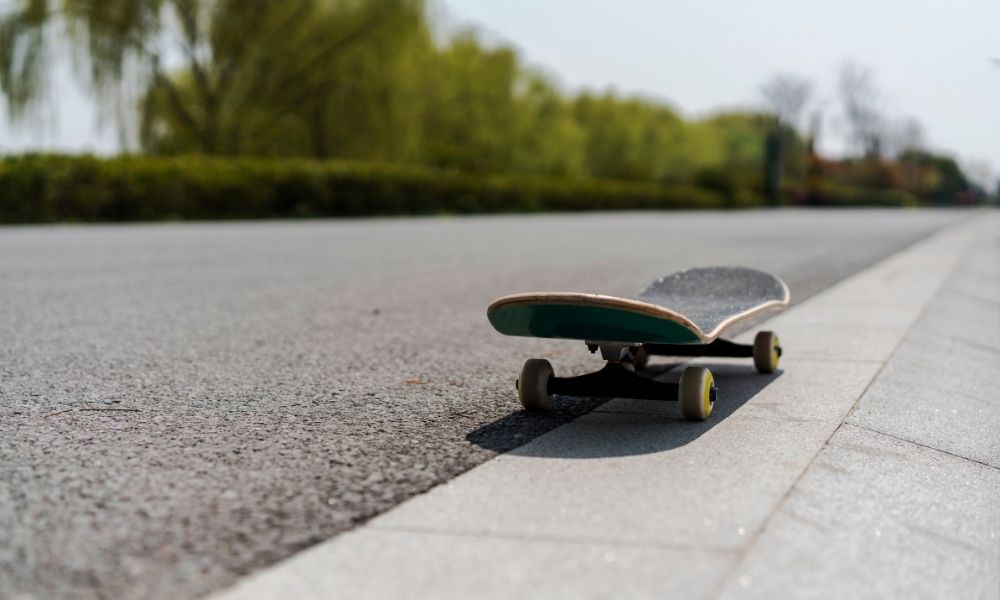
– Vancouver Bylaws
Where I live in Vancouver, Canada, the city council created a bylaw stating that skateboarding is allowed on any minor streets without dividing or directional lines. This essentially allows for residential roads, alleyways, or side streets without painted lines. However, riding on sidewalks or on major roadways is prohibited.
The bylaw also states that they have eliminated the use of police force to seize and detain skateboarders unless they pose a danger to the public. In most cases, police will not get involved with skateboarders unless there is a complaint from a property owner. When this happens, the police must remove the skateboarders to protect the public interest and safety.
– LA Bylaws
In the LA bylaw, skateboarding is allowed unless there are signs saying it is not allowed in a certain area. Otherwise, you are free to skateboard on public roadways, sidewalks, and public parking lots assuming you’re operating the skateboard safely. For example, the bylaw states skaters must be in an upright position (not laying down), must follow traffic controls, yield to traffic and pedestrians, not skateboard in a reckless manner, and cannot be towed behind a vehicle.
As for the “reckless manner”, this is defined as skateboarding at such speeds that may cause injury to yourself, create an obstruction, or create a hazard for public use of the area.
– San Francisco Bylaws
The San Francisco bylaw states that skateboarding is prohibited in all business districts, but is allowed in non-business districts up to 30 minutes after sunset or 30 minutes before sunrise. Several other parts of the city are not allowed, but they are mostly public parks and gardens.
In the non-business districts that you can skateboard in, you are not allowed to use the sidewalks. Instead, you must use the bike lane or stay on the right-hand side of the road if one is not available. The bylaw also states skateboarding is prohibited on any roadway, regardless of district, where the speed limit exceeds 25mph.
Although these few examples share many of the same general principles, there are some differences. The best plan of action is to look up the bylaws where you live and research the regulations around skateboarding near you.
How To Go Street Skating, Without Breaking The Law
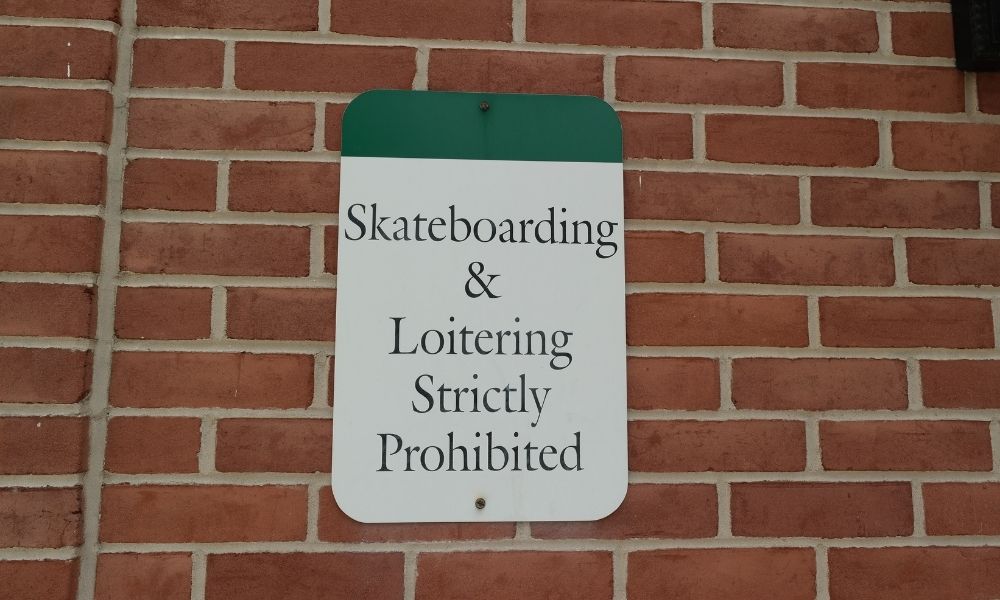
1. Don’t Skateboard On Private Property
Whether it be a private parking lot, an empty pool in someone’s backyard, or whatever other spot you find in town, if it’s private property, it’s best to avoid it. Things such as public squares and some parks (that don’t prohibit skateboarding) are fair game to go explore.
When you skateboard on private property, you are technically trespassing and giving the property owner every right to call the police to escort you off the premises. If there is somewhere you want to skate that’s on private property, you can always try asking the owner. This helps them to feel more trusting that you’re not “up to no good” and ensures they don’t get surprised when they see you.
Admittedly this is a lot harder to do than it sounds, but I have had success with this in the past when a business owner decided he was fine with us skateboarding outside of his building after speaking with us.
2. Follow The Rules Of The Road & Yield To Pedestrians
If you want to have a long, enjoyable session, just follow basic public etiquette when traveling down a road or sidewalk. Motorists and pedestrians have the right of way, so try to make sure you’re not obstructing them as you skate. Otherwise, you’re guaranteed to encounter some angry folks ready to call the police. Kindness and respect go a long way.
Now in some cities skateboarding on the sidewalk is prohibited, so this applies in cities where it is allowed. Even when you find a new spot to skate, make sure nobody is coming or is at risk of getting hit before you go for a trick.
3. Don’t Vandalize Property
This should go without saying but vandalism such as graffiti, removing skate stoppers, or altering objects is a no-go. Vandalism is separate from skateboarding in terms of regulations, so that means police are more likely to get involved if they see you. Vandalizing a skate spot hurts the public perception of skateboarders and doesn’t make property owners fond of you being there.
If you aren’t actively vandalizing a skate spot, there’s no real reason you’ll have an issue assuming you’re following the other city bylaws in place for skateboarding.
The “Skateboarding Is Not A Crime” Movement
If you’re a skater yourself, you’ve likely heard the slogan “skateboarding is not a crime” on a sticker or a t-shirt somewhere. This slogan first came around in 1988 in the “Public Domain” video from Powell Peralta.
Since skateboarding first started, it was long seen as a community of rebels, misfits, and no-gooders by much of the public and city leaders. As skateboarding was growing in popularity, more skaters were heading to the streets to find new places to skate. This was only seen as vandalism and a safety hazard to the public, which lead to the rise of rather extreme regulations towards the sport.
In many major cities, skateboarding as a whole was completely banned. Hefty fines and increased police presence made it increasingly difficult to even exist as a skateboarder.
In the late 90s and early 2000s, this movement grew to help spread the word about skateboarding while educating city officials about the sport and the needs of skaters. This led to the rise of skateparks being built more frequently in different cities, as well as many regulation changes to allow skaters to exist in cities without penalty.
Today the view of skateboarding has radically changed, with skateparks in just about every city, and go-skateboarding day becoming a growing annual event worldwide.
So although there are rules for skateboarding in every city, it is technically allowed. The exact locations that you can skate do vary, but generally, off of major roadways and sidewalks, you are free to skate as you please.
After skating for 10+ years I have never had any real issues while street skating, and have never gotten a fine. The only time I have run into problems is near businesses whose owners called their security asking us to leave. I have personally never had a problem with police, and don’t know anyone who has gotten a fine for skating.
After reading through a handful of different city bylaws, the “cost” of skateboarding where you shouldn’t be is often a verbal warning without any monetary fine attached. However, these rules can change if you are on private property and refuse to leave when told to.
If you’re unsure about the rules in your city, I highly suggest looking up the bylaws for skateboarding near you. That way you can rest easy knowing you aren’t breaking any rules, and aren’t risking a fine the next time you’re out skating the streets.
Happy Shredding!
Brendan 🙂

